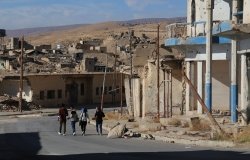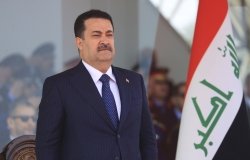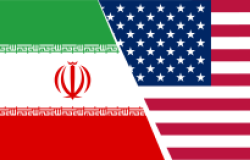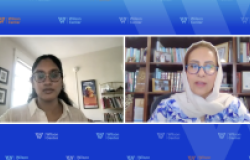Afghanistan: Stagnation or Recovery -- Perspectives from an Aid Worker Based in Northeastern Afghanistan
Alex Klaits, Program Manager, Christian Children's Fund/Child Fund Afghanistan
Overview
Alex Klaits, current Program Manager with Christian Children's Fund (CCF)/Child Fund Afghanistan, spoke about his experiences working in Northeast Afghanistan since January 2002. The Christian Children's Fund (CCF)/Child Fund Afghanistan, a non-evangelical NGO, was the first international NGO to open a new office in Kunduz, a city in north eastern Afghanistan, only a few weeks after the defeat of the Taliban in the north.
Klaits said that CCF sponsors youth literacy and life-skills courses for people aged 12-25 who do not have access to education and for school-aged children who live too far from formal schools. CCF provides services for more than 25,000 students and runs the largest microcredit program in northeastern Afghanistan. The Microcredit program provides loans to thousands of needy women in the region. CCF's other activities, according to Mr. Klaits, include water sanitation programs, teacher-training and community-based health seminars, and the rehabilitation and construction of 13 schools. CCF has set up one teacher-training institute and has built 700 shelters for refugees returning to the region. Mr. Klaits said that CCF's programs are financed by a number of donors including USAID, UNICEF, UNHCR and the German Government.
Klaits noted that the eastern and southern regions of Afghanistan are volatile areas. He said a "rough peace" prevails throughout most of the country, despite the fact that Afghanistan is experiencing its most peaceful time in 25 years. He noted that in the northeastern region where he works, political power is in the hands of one political party and violence is much more rare. Nevertheless, conservative (socially and religious) parents are often reluctant to send their girls on a three-kilometer walk to school for lack of security.
He said even a "rough peace" is welcomed. Two million Afghans returned to their homes since the beginning of 2002, including 350,000 to the northeast region. The refugees saw few signs of large-scale reconstruction and rebuilding. Klaits noted that most of the estimated $3 billion in aid was spent on the free distribution of food rather than on long-term improvement programs. The distribution of aid, he acknowledged, has been additionally challenging due to factors such as the large Afghani population (25 million), which is bigger than most recent post-conflict countries like East Timor or Kosovo.
Klaits described the projects of the U.S. military funded Provisional Reconstruction Teams (PRTs) as designed "to win hearts and minds" of the local population. But recent decreases in funding for reconstruction activities have left the task of building additional schools and clinics to PRTs rather than NGOs in northeastern Afghanistan.
Klaits noted that Afghans in the northeast are looking for record crop production of rice, wheat, melons and opium. Record opium crops this year and last at least inject much-needed cash into a faltering economy, he said.
Hosted By

Middle East Program
The Wilson Center’s Middle East Program serves as a crucial resource for the policymaking community and beyond, providing analyses and research that helps inform US foreign policymaking, stimulates public debate, and expands knowledge about issues in the wider Middle East and North Africa (MENA) region. Read more

Indo-Pacific Program
The Indo-Pacific Program promotes policy debate and intellectual discussions on US interests in the Asia-Pacific as well as political, economic, security, and social issues relating to the world’s most populous and economically dynamic region. Read more
Thank you for your interest in this event. Please send any feedback or questions to our Events staff.










